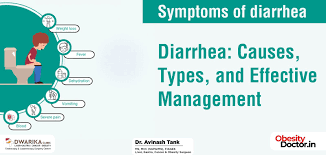Diarrhea is loose, watery stools three or more times a day. Diarrhea may be acute, persistent, or chronic:
- Acute diarrhea is a common problem that typically lasts 1 or 2 days and goes away on its own.
- Persistent diarrhea lasts longer than 2 weeks and less than 4 weeks.
- Chronic diarrhea lasts at least 4 weeks. Chronic diarrhea symptoms may be continual or may come and go.
How common is diarrhea?
Diarrhea is a common problem. Acute diarrhea is more common than persistent or chronic diarrhea. Researchers estimate that about 179 million cases of acute diarrhea occur in the United States each year.1
What are the complications of diarrhea?
Dehydration
Diarrhea may cause dehydration, which means your body lacks enough fluid and electrolytes to work properly. Your body loses more fluid and electrolytes in loose stools than solid stools. See a list of the symptoms of dehydration.
Malabsorption
Diarrhea may cause malabsorption If people do not absorb enough nutrients from the food they eat, they may become malnourished. Certain conditions that cause chronic diarrhea—such as infections, food allergies and intolerances, and certain digestive tract problems—may also cause malabsorption. See a list of the symptoms of malabsorption.




